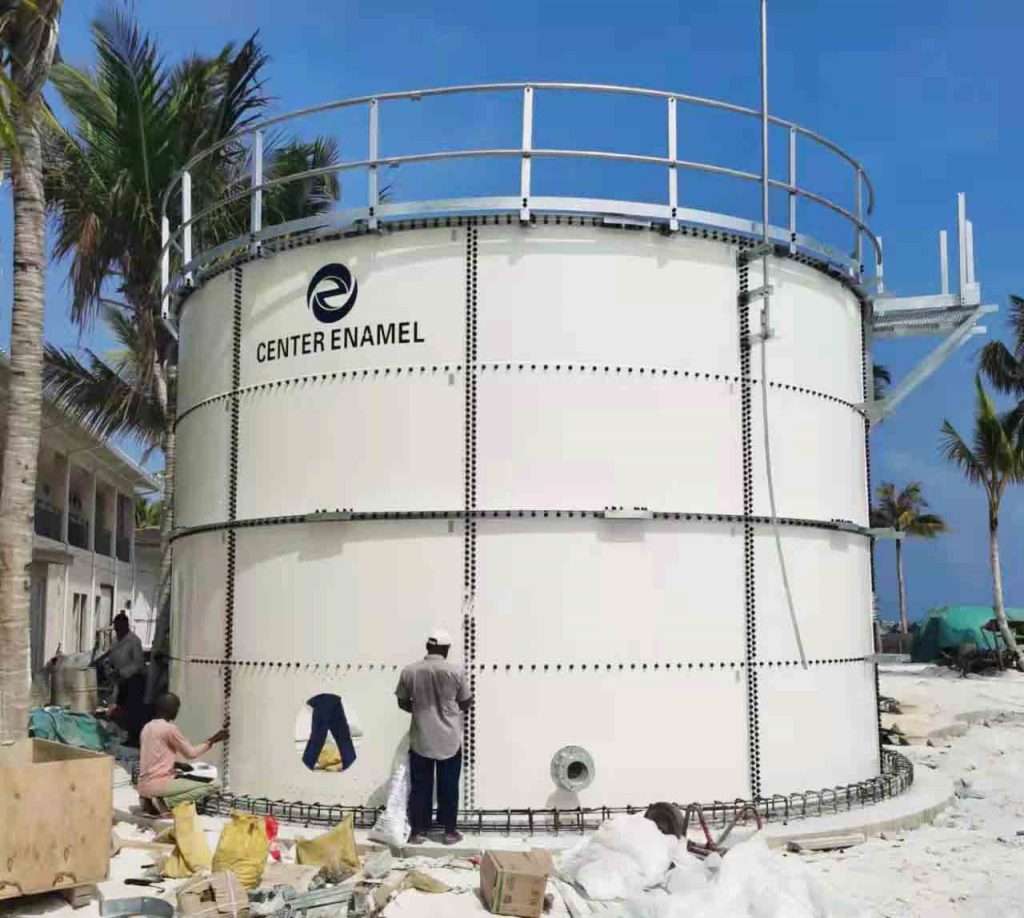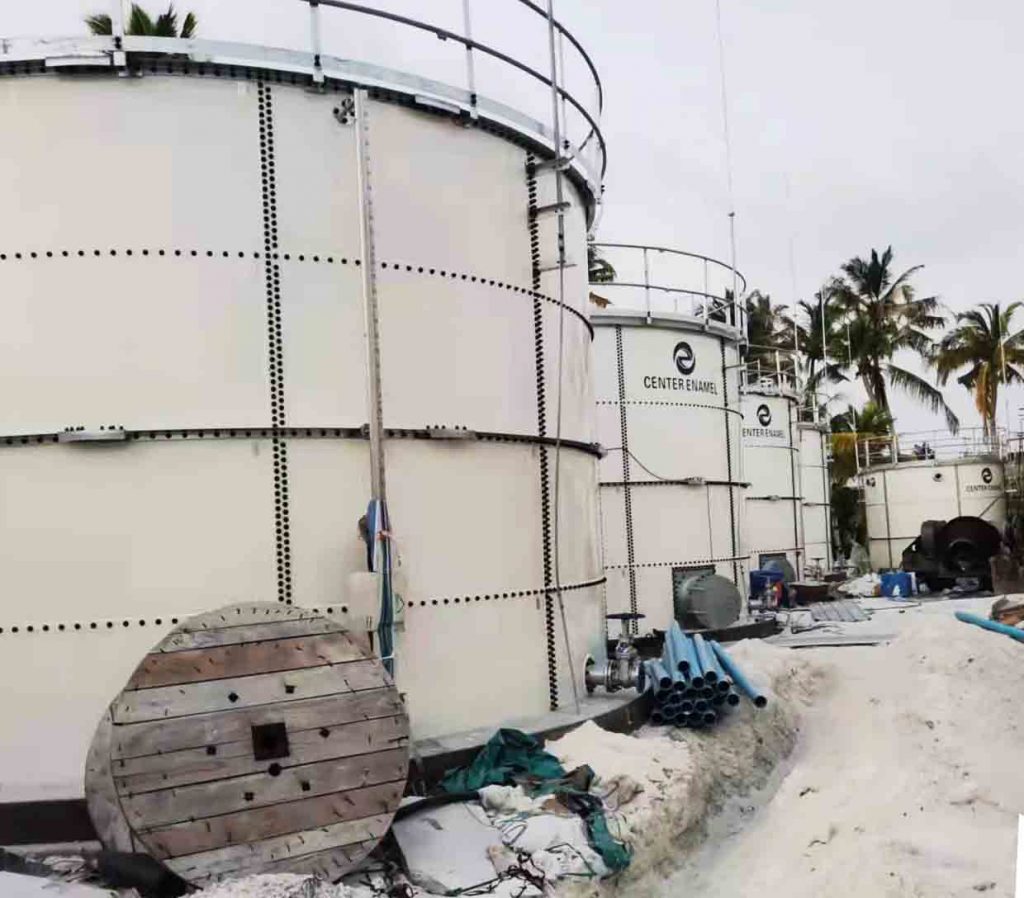
Desalination Tank For Seawater Desalination Project
As an indispensable daily resource, drinking water is even more crucial for island residents. The islands are usually surrounded by sea water, and the water resources appear to be abundant. Seawater desalination is used in many island areas. Seawater resources can only be used after desalination to meet drinking water standards. Desalination tanks are large storage tanks that can store and desalinate seawater to provide fresh drinking water for urban residents.
Recently, Center Enamel went to the Maldives to build a seawater desalination project and provided desalination tanks for the project to store the drinking water after the seawater has been treated by the system. The completion of the project can not only meet the needs of Maldivian residents for living and production of water, but also promote the stable development of the local society and economy, and provide a reference for the solution of seawater desalination problems in other islands, which is of typical demonstration significance. Desalination focuses on developing cost-effective means of freshwater supply for use in areas with limited freshwater supplies and therefore suitable for human drinking or irrigation.

To ensure the water supply of island residents, in addition to water storage and drinking water, ensuring the quality and safety of drinking water is also a top priority. Center Enamel provides drinking water solutions according to local conditions and uses enamel assembled tanks as project equipment. Different from other equipment of the same type, the enamel assembled tank developed by Center Enamel has passed many international certifications such as FDA. Its enamel layer has excellent antibacterial and anti-corrosion effect, and the color is white, the color is stable, and the safety of drinking water is strengthened.
In addition to Maldives, Center Enamel has also built drinking water projects in Indonesia, Ghana, Costa Rica, Panama and other countries and regions, effectively solving the problems of water shortage and drinking water safety, and meeting the daily water and drinking water needs of local residents. Unanimous approval of customers.
